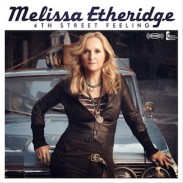Arts & Entertainment
Etheridge comes full circle
Out rock icon talks about her newest release taking us back to her roots; chats election year politics
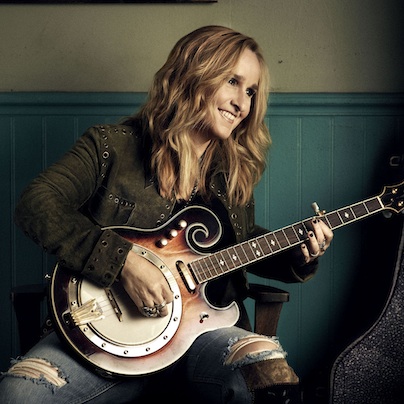
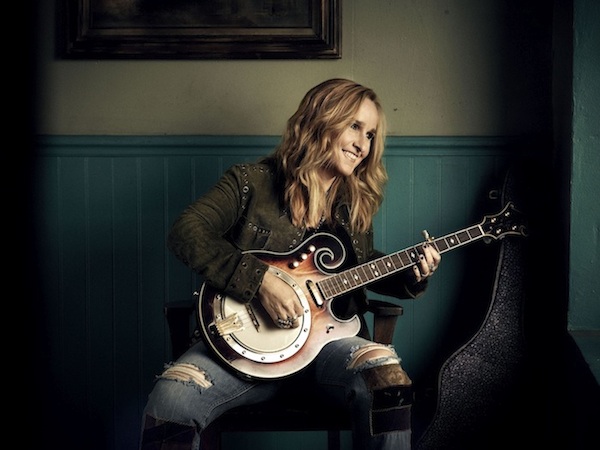
On the eve of her 25th year in the music industry, Melissa Etheridge is taking new risks, picking up new instruments and returning to her childhood roots. (Photo by James Minchin III courtesy Island Records)
Listening to Melissa Etheridge’s “4th Street Feeling,” out this week on her home label for 24 years, Island Records, one might agree with the dynamite rock legend’s own description of the sound as “organic.”
After adopting a more pop, adult contemporary sound in the middle of the last decade for singles like her cover of Greenwheel’s “Breathe,” the Oscar and two-time Grammy winning icon has returned to a nostalgic country blues sound that would flow well into a playlist with other artists she says she once played on her Chevy Impala’s 8-track in the ‘70s while driving the strip the album was named for in her hometown of Leavenworth, Kan.
Breaking barriers first by coming out in the early ‘90s and then rocking a Janis Joplin tribute live at the Grammys, bald from radiation and chemotherapy during breast cancer treatment, Etheridge returns to where she was born and raised for her eclectic 11th studio album, while experimenting with some new elements as well — like the banjitar featured in the first single “Falling Up.”
Etheridge, who will be honored at the National Museum for Women in the Arts starting today as part of the exhibition “Women Who Rock,” will bring her 4th Street Feeling tour to Bethesda’s Strathmore Music Center on Nov. 2.
““This next year, 2013, I’ll have been in the professional music business for 25 years,” Etheridge says of the National Museum for Women in the Arts exhibit when she sat down with the Blade to discuss her new album, the tour and the election year. “It’s nice to be honored. To be part of a wonderful community, the wonderful quilt of artists in our society that have brought forth the human experience.”
Etheridge has always been known as a confessional musician, but her personal woes have been on display in a new way with her high-profile 2010 split from actress Tammy Michaels and the contentious alimony and custody cases that have only recently been resolved. Nevertheless, the gravelly-voiced composer sings about her readiness to accept love again on her newest release, telling the Blade that when she sings, “I think I’m ready to try my hand at love again” in the track “Rock & Roll Me,” she’s singing about her budding relationship with “Nurse Jackie” creator Linda Wallem, whom she met through her ex.
““I don’t think we’re ever ready,” she says. “Like if it was up to me I’d still be sitting up in my room, ‘No! No! I’m not going to do that again!’ But love has a way of coming and the relationship that I’m actually in now, she’s been my best friend for 10 years. Believe me, I wasn’t going to go out and look for it, it found its way into my home. I’m very happy. Yes I am ready to try my hand at love again.”
Washington Blade: So the ‘banjitar’: where did you find this instrument?
Melissa Etheridge: It kind of started when I was writing songs to go play on the album, before I went to record. Listening to the radio, listening to popular music trends, I was delighted that people were playing organic instruments. I was hearing mandolins and banjos and real instruments.
I remember thinking, “I can play the banjo.” You know. I’m not terribly good at it, I played it a long, long time ago, but I can play a song on it.
So when I wrote “Falling Up,” I thought, “Yeah, I want to put banjo on this,” so I brought my banjo to the studio, and I said, “Yeah I’m going to play the banjo; not so good at it but you know, it’ll be fine.” And my guitar tech, Mark VanGool — he’s just a genius guitar guy — well why don’t you play the banjitar. I look at him like, ‘What are you talking about,’ and he says, “Yeah, its a banjo body, but its got a guitar neck, so you play it like a guitar, but it sounds like a banjo.” I said “That just sounds perfect!”
So he had one. He brought it. I played it, and the rest is history.
The album might be a dying art, with everyone being able to just buy singles so much. And really, I still think in a collection of music, not just one song. So all the songs are really different. It was hard to pick a first single. What’s representative of this album? It’s really hard. The record company chose “Falling Up,” and I was like “OK.”
Blade: You described that 4th Street feeling as the freedom to put everything you owned into your Chevy Impala. You’ve been on a long journey from Leavenworth Kan., so it’s interesting that the emotional center of this album has us listening to Al Green and Tina Turner on your old 8-track. Why was it so important for you to bring us all back here with you?
Etheridge: Because that’s where my journey took me. I thought in the spiritual evolution of aging and gaining wisdom that I would somehow shed all my old stuff and become something new. What I found is the only way you can become something new is to completely embrace all the old that you are and understand where you came from, and hold it, and even change your past in a way — in the way that you perceive it. In the way that you hold it now. And music takes you right back there. It’s obvious that we’re doing some reminiscing as a society right now. The music sounds like it’s right out of the ‘60s or something, everything is retro, it’s going back. It’s like taking the best of what we did do and growing on it. The organic stuff. That’s what I found. I’m not getting away from this, I’m being in this, and seeing it as something better.
Blade: You sing “Shake it like a polaroid” in your first single “Falling Up” which sounds like a nod to Outkast’s Andre 3000. Who are some other contemporary top 40 artists that you appreciate?
Etheridge: Oh yeah! Love Outkast. Always have. I think they’re very innovative and creative. I can cross all genres. My kids especially — like my daughter — play artists, she first turned me onto Ellie Goulding. She’s a little pop for me, but I appreciate a lot of the singer-songwriter stuff. Loved the Mumford and Sons album, Band of Horses, love Black Keys, (I’m) loving Alabama Shakes. All these great artists that I just want to see live and jump around with.
Blade: You came out 19 years ago and released “Yes I Am.” Just recently, R&B singer Frank Ocean followed your script, coming out and dropping an album; how has the music industry changed for gay musicians since ‘93?
Etheridge: Well, there’s safety in numbers, you know? I think in the ‘90s when those of us were peaking out, it was a sparse field. But I think everyone was kind of watching going, “Well, are you going to lose everything? Is it going to be like what we think?” And it’s all about how you kind of hold yourself in it.
Back then we did it. Did it hurt my career? I say, “I went from selling one million to six million.” People can see that I’m not blaming any of my perceived failures on being gay, so I hold it that way. Its just part of who I am. Its part of the big tapestry of who I am.
I don’t think there’s that big of a difference [between the current gay male artist experience and the experience for out lesbian artists]. I think we’re all aware of our society’s hang-ups when it comes to sexuality. We’ve realized that our sexual desires is what makes us different and dangerous. We’ve all grown up with it. We also know that the male aspect of that sexuality can be really frightening to a lot of people, so I think that it is somehow looked at as it’s harder to be a gay man and open in the entertainment industry. You’ve got to be really solid to do that. In general, it’s a little more delicate of a subject, just because of all the fear.
Blade: Four years ago, you took part in the historic Logo-HRC Presidential panel, and you were fairly vocal leading to the general. What do you think of what’s happened since then?
Etheridge: In the last 20 years, especially the last four, I think [the LGBT community has] become wiser about what part we play in this American drama that keeps unfolding in front of us, this experiment called Democracy and America and equality and what it really means. We challenge it to its very core and we’ve seen how we’ve been played in this game. OK, our votes are important, but no one can ever give us full cooperation, or they might be deemed less than, weak, or whatever scares them from giving us our civil rights. So I think this last thing that Obama did, by saying he supports gay marriage, it changes the direction of the stream just enough to kind of give us “Alright, there’s a reason we’ll vote for you again. Yes, you need our votes.” Because we’re a large group of people that cuts across every kind of people. And it also cuts across so many of our deep-seated fears in our whole culture. It’s a challenge. We’re challenged people, and we are challenging. And I think the homosexual community are the leaders in our great societal change right now. We are really pushing it, and I think it’s great.
Blade: What do you think of the Romney-Ryan ticket?
Etheridge: I think it’ll be a really interesting Trivial Pursuit question in 20 years. “Who was that running mate? Who was the Mormon guy?” I think it is fascinating. If you’d have told me in the ‘80s, “Oh my God, in 2012 there’ll be a black president — half black and half white — and he’s going to run against a Mormon with a Catholic Vice Presidential candidate …” But that shows that we are so diverse, that we are really opening up to all. You know what, in this great America of ours, there’s mixed-race people, there are Mormons, there are Catholics, there are every type of person and we have to show the world how it can all get along.
Blade: What are your thoughts on Rep. Todd Akin and his “legitimate rape” statement?
Etheridge: Things are spread instantly. A sentence can leave your mouth, and in a half hour, your life could be totally changed. I love that instant accountability that we have now. And it also gives us an opportunity to examine ourselves and go “Whoa! These deep-seated beliefs or fears are still there!” There’s a lot of dark shadowy ignorance out there in the world, and its coming to the surface, and we’re going to see it in some of our quote-unquote leaders. I don’t think we should shut him down. “OK dude. Wow. Let’s talk about that. What makes it legitimate or not?” Bring these things to the forefront and then let people vote their conscience.
Blade: It always seems with the LGBT community it’s two steps forward, two steps back. We’ve had months of good news, but we’ve had setbacks in North Carolina, some high profile anti-gay attacks and murders and just last week here in D.C. a member of our LGBT community shot a security guard at the Family Research Council’s headquarters. As an artist how do you respond to these crises of community?
Etheridge: I look at the LGBT community as the balance. We are all searching for balance right now. Our whole society. The whole human race. The gay community — we are examples of balance, because we have both the male and female inside each of us. And that’s pretty special. And when we can learn to love that about us more, then we’ll see that there are emotional distresses in every type of person in every walk and choice of person, and that there’s a lot of sadness and a lot of fear and it makes you perfect and normal. And we have to realize that our diversity is our strength, not only in our community but in our country, in the world. It’s loud and clear we better jump on that wagon, that everyone is different, and you have to celebrate those differences, otherwise we’re just going to destroy ourselves. So I appeal to the LGBT community and say, “Hold yourself as someone very special. Believe in who you are, and hold your balance. And that will help balance the rest of the world.”
a&e features
Transmission DC breathes new life into a storied sound space
A fresh home for boundary-pushing culture on H Street

Late last year, phoenix-style, a fresh home for boundary-pushing culture arose on the H Street corridor. Transmission DC – a queer, trans, and POC-owned, operated, and centered community-focused venue – powered on in the former home to the Rock & Roll Hotel (famously, not a hotel, but very much rock & roll). Transmission (1353 H St., N.E.) arrives secure in its mandate – or even birthright – to provide a place to celebrate creativity and music through a lens of inclusivity and respect.
Transmission’s team brings experience, but also representation. Owners/partners Kabir Khanna (who is also programming director), Katii B, Ellie McDyre, and Kelli Kerrigan together previously managed 618 productions, a venue in Chinatown, crafting “some of D.C.’s freakiest parties, raves, and mosh pits” they note.
They packed up operations last fall to a space curated specifically for D.C.’s underground music and culture scene, building their efforts in Chinatown to bring in more fans in queer and POC circles.
Transmission, Khanna points out, is built on DIY values. In the music scene, DIY means that promoters and organizers – often disconnected from the mainstream and part of marginalized communities – build shows and programs collaboratively, but independently from institutions, supporting each other as smaller, independent venues close. Here, Transmission aims to ensure that those putting together these underground inclusive shows have a more permanent and stable home, can have access to resources, and can provide more sustainable income to artists. “We’re trying to get more people to support and enjoy the music, and also give artists and organizers within the DIY community more structure and a larger cut,” says Khanna.
Khanna also notes that Transmission operates “under the principles of safety, inclusivity, and respect.” McDyre added that even at venues that claim inclusivity, that statement might not take place in practice. We’re “not just pitting up a rainbow flag,” says McDyre, but as some of the owners are trans and POC, audiences can see themselves reflected at the top.
Much like the DIY nature of the music community, the Transmission owners brought a DIY ethos to turning around their space.
In March 2020 – the height of COVID lockdowns – Rock & Roll Hotel suddenly shuttered, though not due to the pandemic; instead, the venue claimed that decreasing sales and increasing competition led to the closure. For 14 years, it was the central spot for cheap beer and lesser-known and celebrated acts. The space stood vacant for more than five years, until Transmission turned the power back on.
“When we got into the space, it was effectively abandoned for years,” says Khanna. “There was a ton of mold, and paint primer covering all surfaces. It was nearly falling apart.” Khanna noted that many music venues like this one, regardless of how well it was maintained, “get the shit kicked out of it,” given the nature of shows. The team called in mold removal contractors, ripped up most of the floorboards, and started fresh.
Transmission’s first floor is styled as a stripped-down black box: the better to take in the music. “It’s minimal on purpose to act as a canvas for set design and music,” without a specific aesthetic, says Khanna. Moving upstairs, the second floor has been opened up, removing some walls, and now has a larger dance area than the first floor. Beyond the first two performance levels, and a holdover from Rock & Roll Hotel, is the rooftop. Though without a stage, the rooftop space is filled with murals splashed across the walls, with a full bar. Transmission’s current capacity is 496, but the team is looking to grow that number. Transmission will also leverage the full kitchen that Rock & Roll Hotel operated, bringing in Third Hand Kitchen to offer a variety of food, including vegan and vegetarian options.
Khanna pointed out an upcoming show reflective of Transmission’s inclusive ethos: Black Techo Matters on Feb. 27. The event is set to be “a dynamic, collaborative night of underground electronic music celebrating Black History Month.” Khanna says that techno came from Black music origins, and this event will celebrate this genesis with a host of artists, including DJ Stingray 313, Carlos Souffront, and Femanyst.
Movies
Moving doc ‘Come See Me’ is more than Oscar worthy
Poet Laureate Andrea Gibson, wife negotiate highs and lows of terminal illness

When Colorado Poet Laureate Andrea Gibson died from ovarian cancer in the summer of 2025, the news of their passing may have prompted an outpouring of grief from their thousands of followers on social media, but it was hardly a surprise.
That’s because Gibson – who had risen to both fame and acclaim in the early 2000s with intense live performances of their work that made them a “superstar” at Poetry Slam events – had been documenting their health journey on Instagram ever since receiving the diagnosis in 2021. During the process, they gained even more followers, who were drawn in by the reflections and explorations they shared in their daily posts. It was really a continuation, a natural evolution of their work, through which their personal life had always been laid bare, from the struggles with queer sexuality and gender they experienced in their youth to the messy relationships and painful breakups of their adult life; now, with precarious health prohibiting a return to the stage, they had found a new platform from which to express their inner experience, and their fans – not only the queer ones for whom their poetry and activism had become a touchstone, but the thousands more who came to know them through the deep shared humanity that exuded through their online presence – were there for it, every step of the way.
At the same time, and in that same spirit of sharing, there was another work in progress around Gibson: “Come See Me in the Good Light,” a film conceived by their friends Tig Notaro and Stef Willen and directed by seasoned documentarian Ryan White (“Ask Dr. Ruth”, “Good Night, Oppy”, “Pamela, a Love Story”), it was filmed throughout 2024, mostly at the Colorado home shared by Gibson and their wife, fellow poet Megan Falley, and debuted at the 2025 Sundance Film Festival before a release on Apple TV in November. Now, it’s nominated for an Academy Award.
Part life story, part career retrospective, and part chronicle of Gibson and Falley’s relationship as they negotiate the euphoric highs and heartbreaking lows of Gibson’s terminal illness together, it’s not a film to be approached without emotional courage; there’s a lot of pain to be vicariously endured, both emotional and physical, a lot of hopeful uplifts and a lot of crushing downfalls, a lot of spontaneous joy and a lot of sudden fear. There’s also a lot of love, which radiates not only from Gibson and Falley’s devotion and commitment to being there for each other, no matter what, but through the support and positivity they encounter from the extended community that surrounds them. From their circle of close friends, to the health care professionals that help them navigate the treatment and the difficult choices that go along with it, to the extended family represented by the community of fellow queer artists and poets who show up for Gibson when they make a triumphant return to the stage for a performance that everyone knows may well be their last, nobody treats this situation as a downer. Rather, it’s a cause to celebrate a remarkable life, to relish friendship and feelings, to simply be present and embrace the here and now together, as both witness and participant.
At the same time, White makes sure to use his film as a channel for Gibson’s artistry, expertly weaving a showcase for their poetic voice into the narrative of their survival. It becomes a vibrant testament to the raw power of their work, framing the poet as a seminal figure in a radical, feminist, genderqueer movement which gave voice to a generation seeking to break free from the constraints of a limited past and imagine a future beyond its boundaries. Even in a world where queer existence has become – yet again – increasingly perilous in the face of systemically-stoked bigotry and bullying, it’s a blend that stresses resilience and self-empowerment over tragedy and victimhood, and it’s more than enough to help us find the aforementioned emotional courage necessary to turn what is ultimately a meditation on dying into a validation of life.
That in itself is enough to make “Come See Me in the Good Light” worthy of Oscar gold, and more than enough to call it a significant piece of queer filmmaking – but there’s another level that distinguishes it even further.
In capturing Gibson and Falley as they face what most of us like to think of as an unimaginable future, White’s quietly profound movie puts its audience face-to-face with a situation that transcends all differences not only of sexuality or gender, but of race, age, or economic status as well. It confronts us with the inevitability few of us are willing to consider until we have to, the unhappy ending that is rendered certain by the joyful beginning, the inescapable conclusion that has the power to make the words “happily ever after” feel like a hollow promise. At the center of this loving portrait of a great American artist is a universal story of saying goodbye.
Yes, there is hope, and yes, good fortune often prevails – sometimes triumphantly – in the ongoing war against the cancer that has come to threaten the palpably genuine love this deeply-bonded couple has found together; but they (and we) know that, even in the best-case scenario, the end will surely come. All love stories, no matter how happy, are destined to end with loss and sorrow; it doesn’t matter that they are queer, or that their gender identities are not the same as ours – what this loving couple is going through, together, is a version of the same thing every loving couple lucky enough to hold each other for a lifetime must eventually face.
That they meet it head on, with such grace and mutual care, is the true gift of the movie.
Gibson lived long enough to see the film’s debut at Sundance, which adds a softening layer of comfort to the knowledge we have when watching it that they eventually lost the battle against their cancer; but even if they had not, what “Come See Me in the Good Light” shows us, and the unflinching candor with which it does so, delivers all the comfort we need.
Whether that’s enough to earn it an Oscar hardly matters, though considering the notable scarcity of queer and queer-themed movies in this year’s competition it might be our best shot at recognition.
Either way, it’s a moving and celebratory film statement with the power to connect us to our true humanity, and that speaks to a deeper experience of life than most movies will ever dare to do.
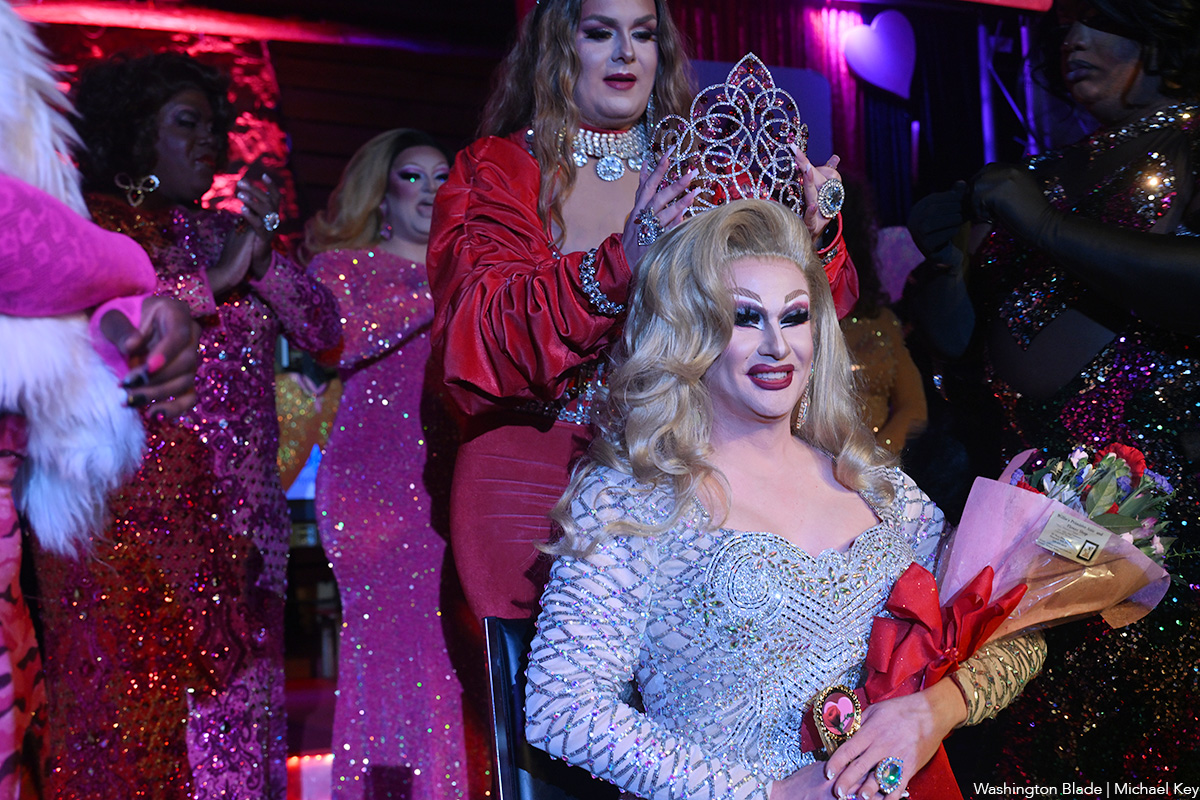
The 44th annual Queen of Hearts pageant was held at The Lodge in Boonsboro, Md. on Friday, Feb. 20. Six contestants vied for the title and Bev was crowned the winner.
(Washington Blade photos by Michael Key)
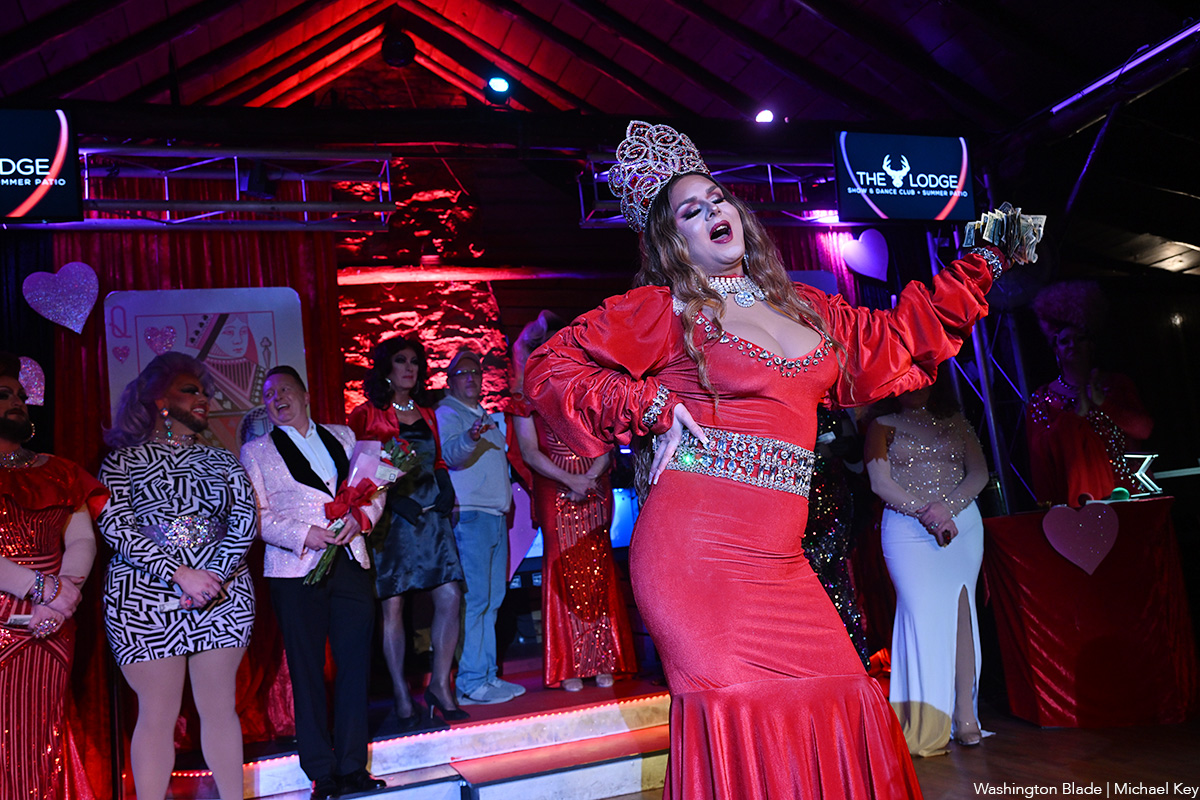
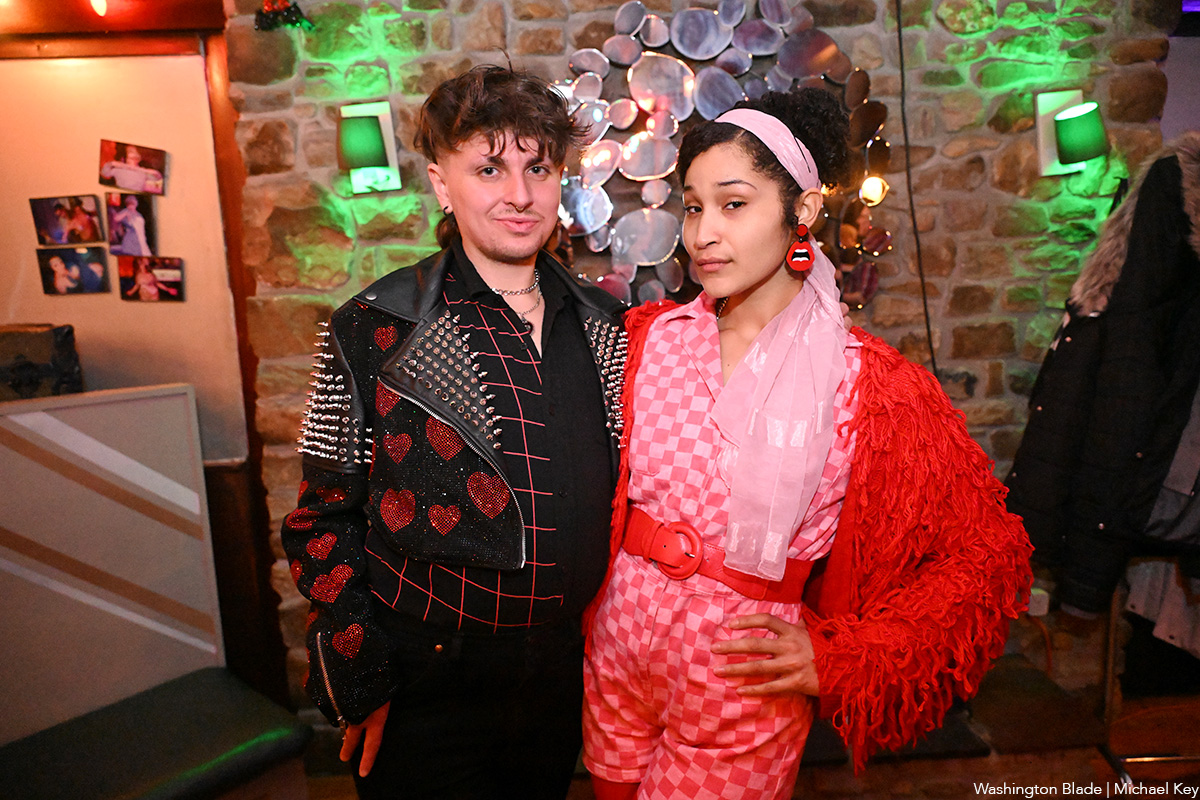
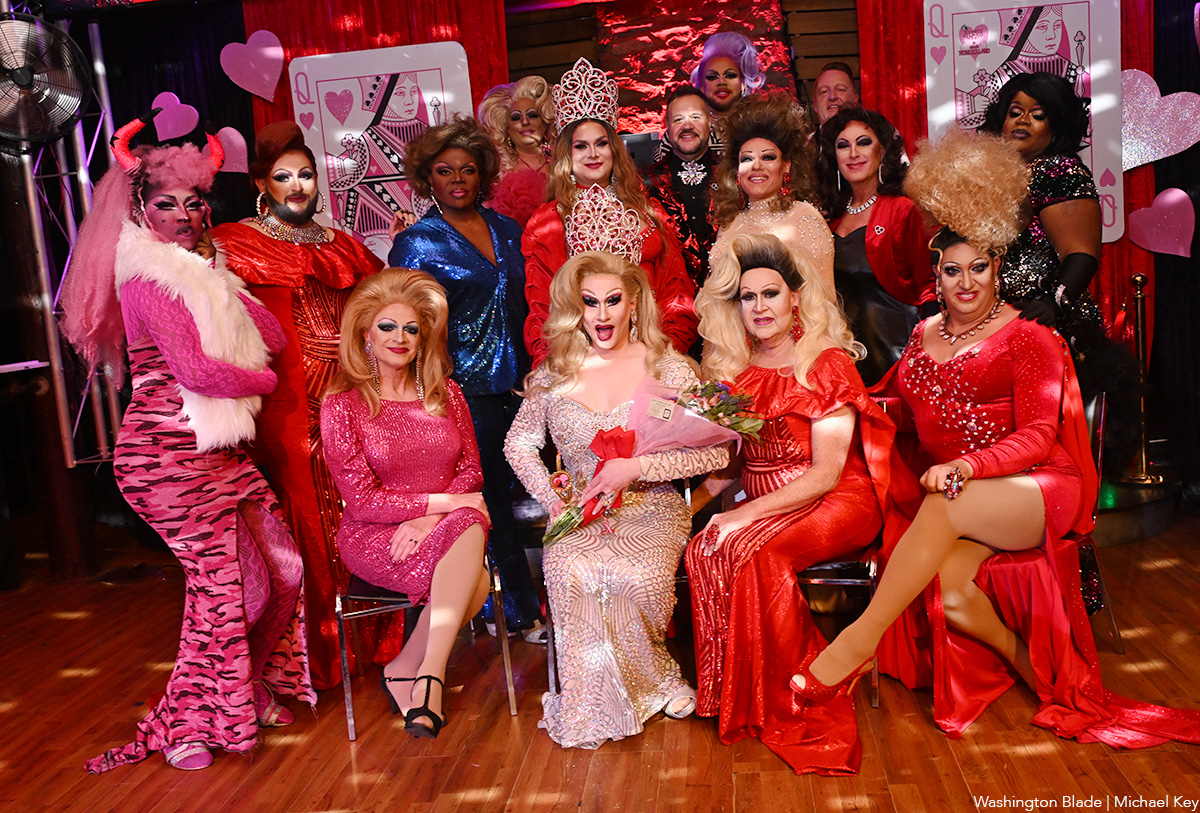
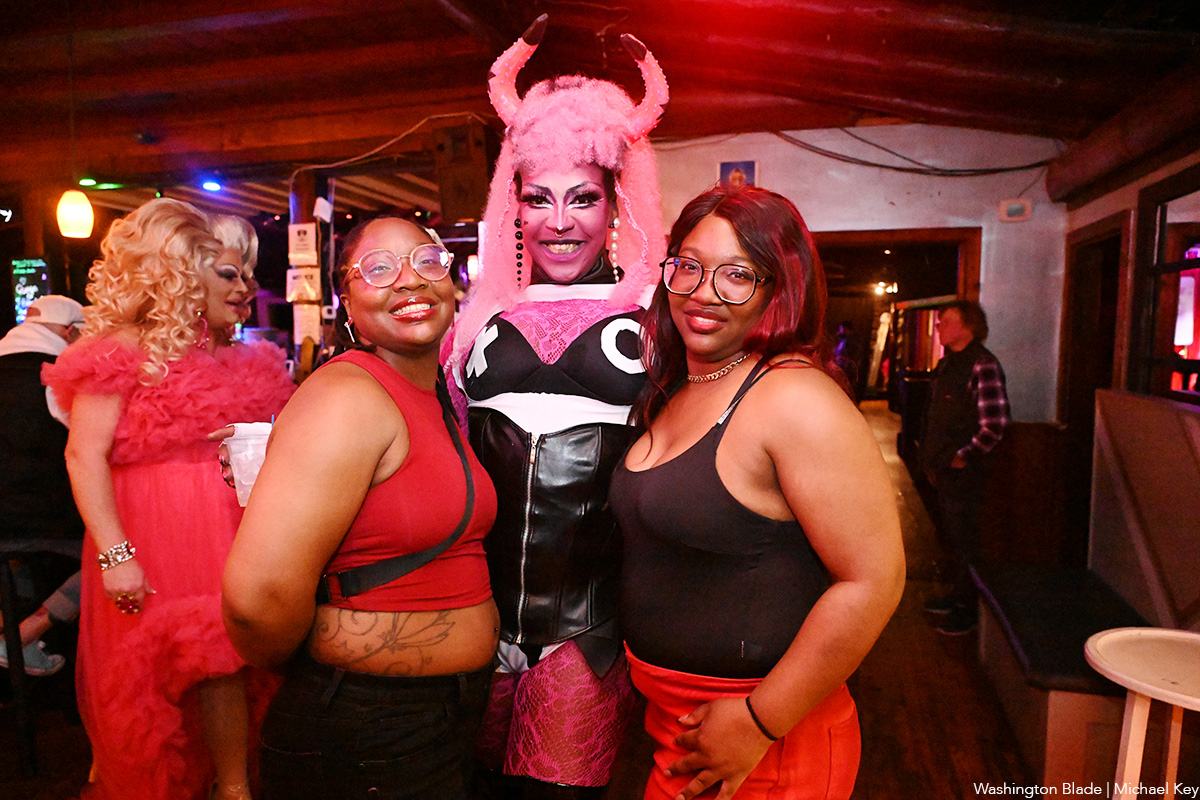
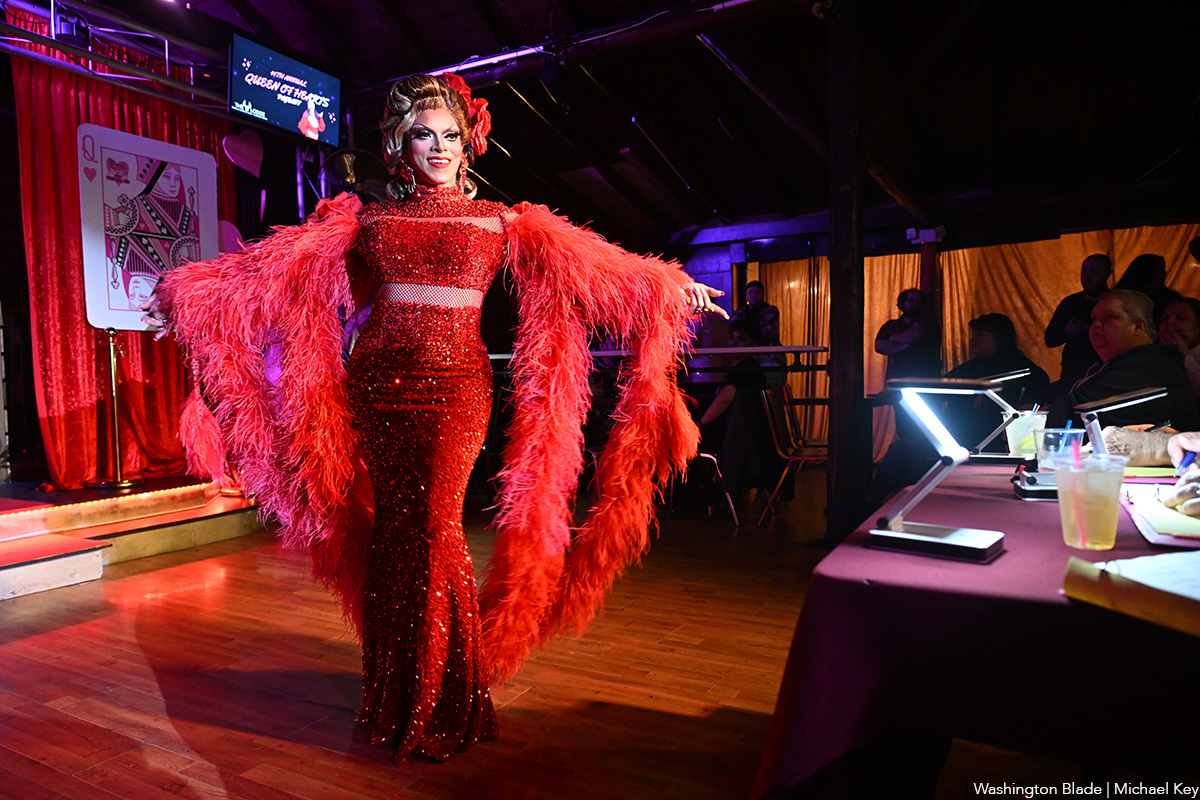
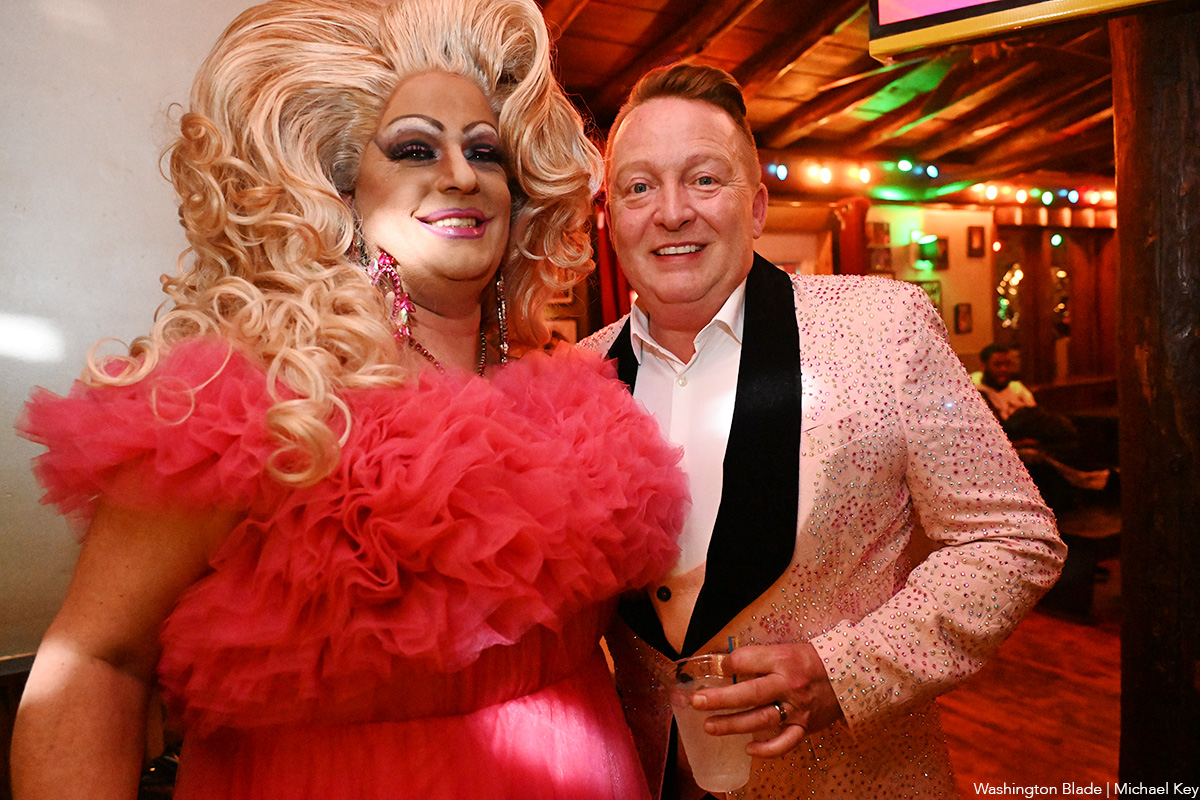
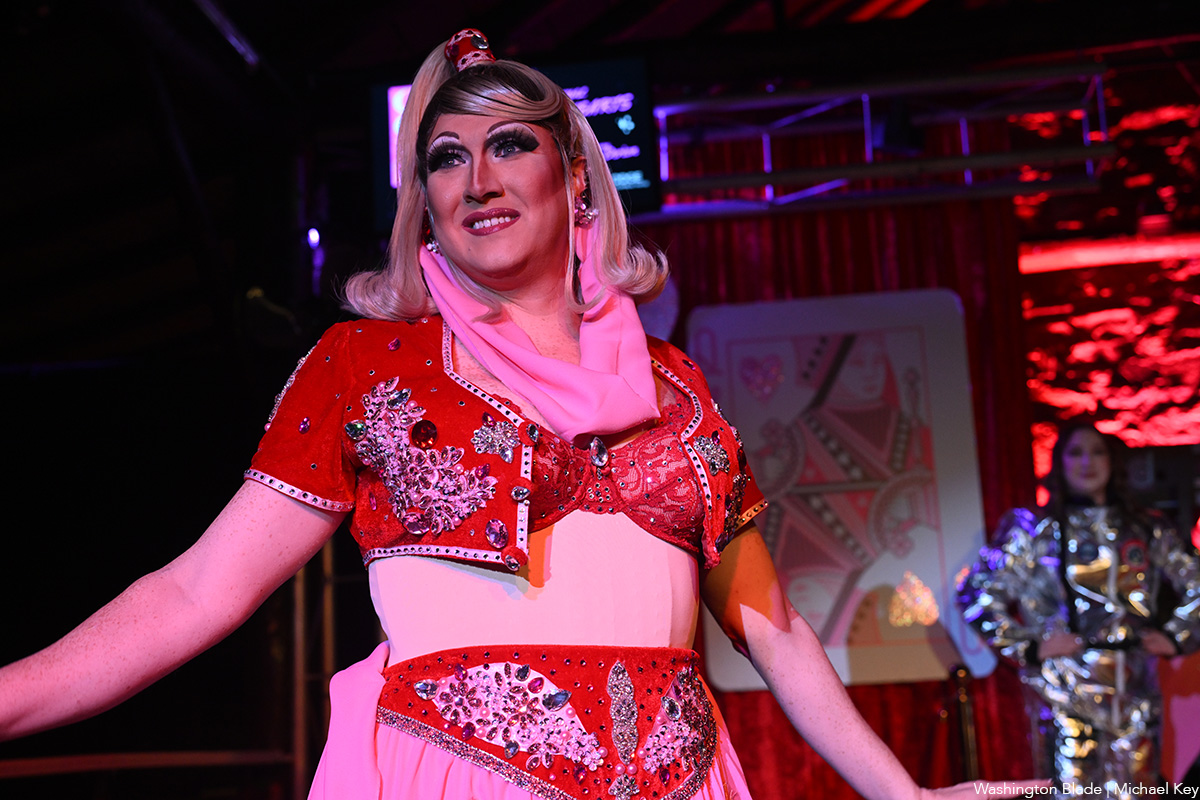
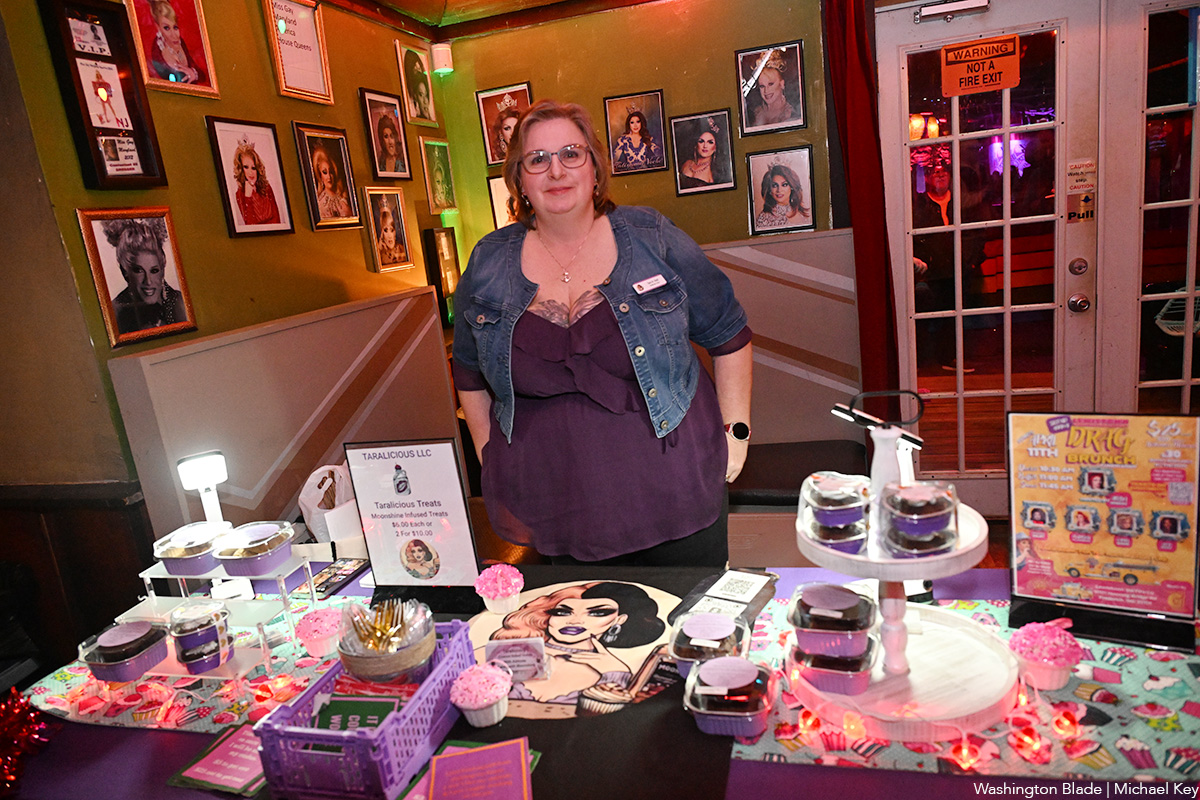
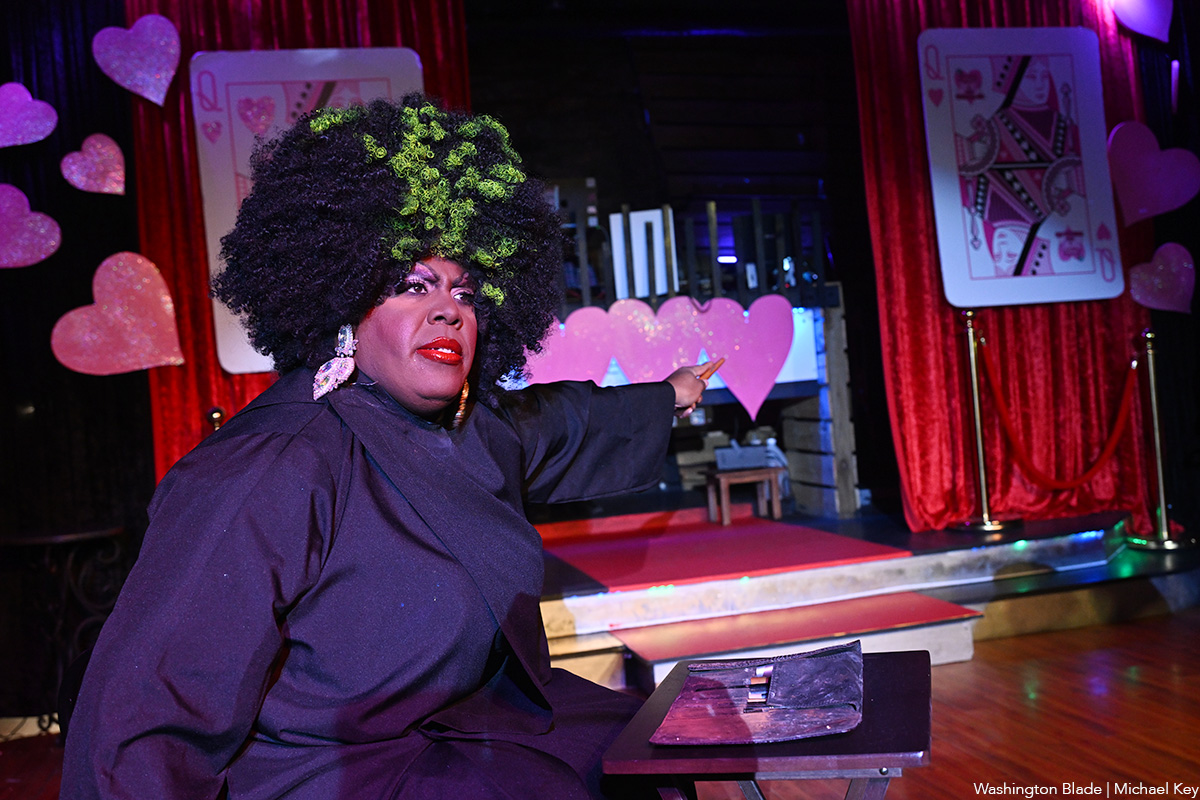
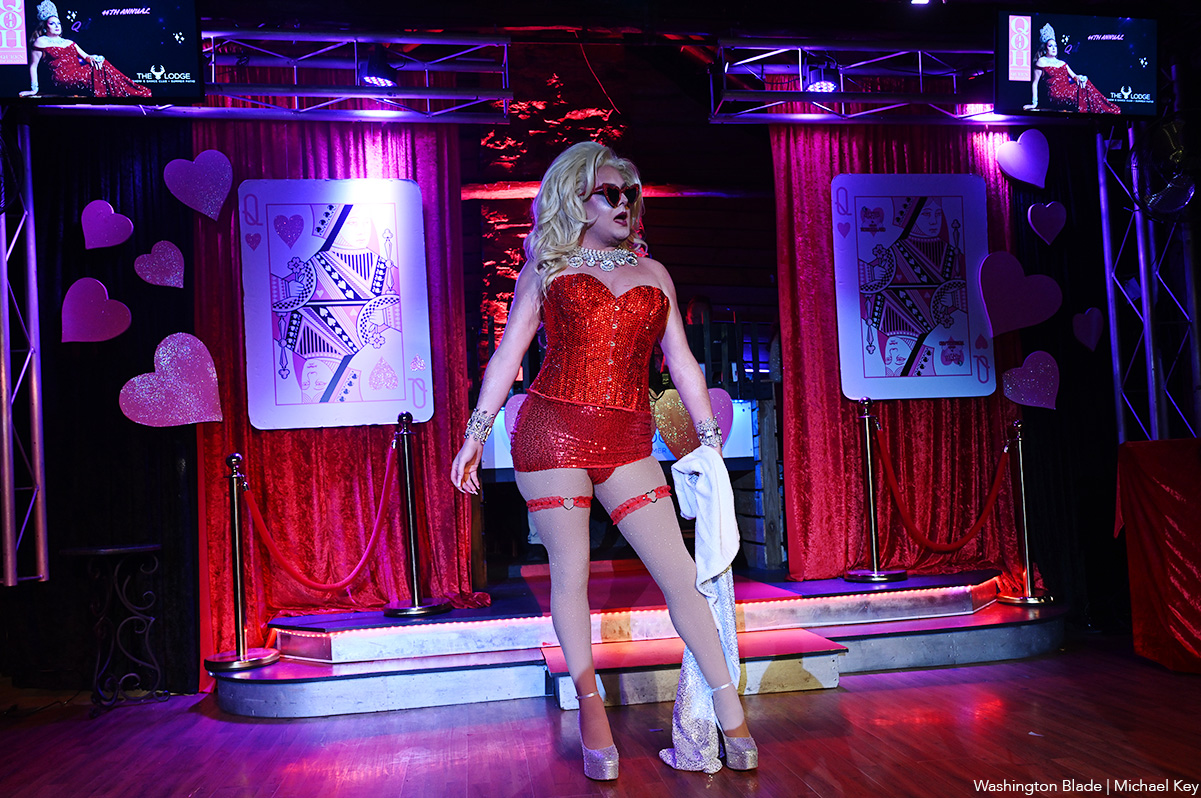
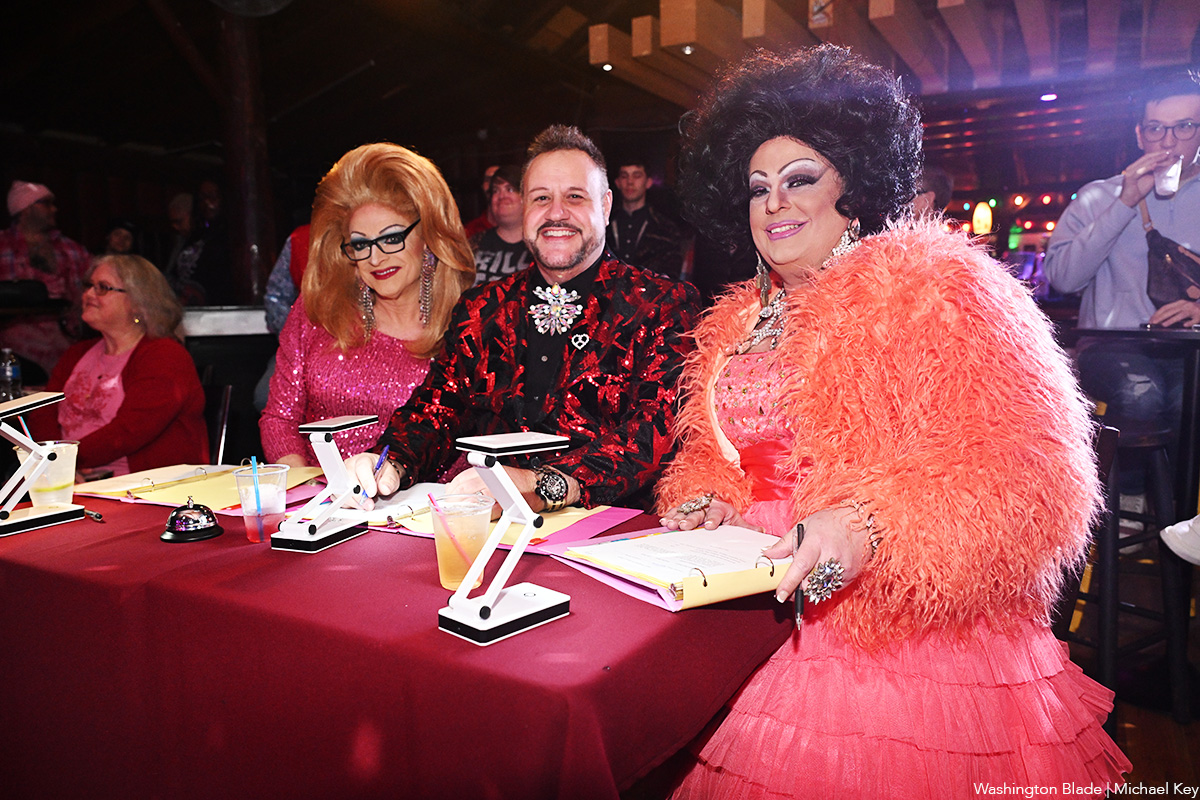
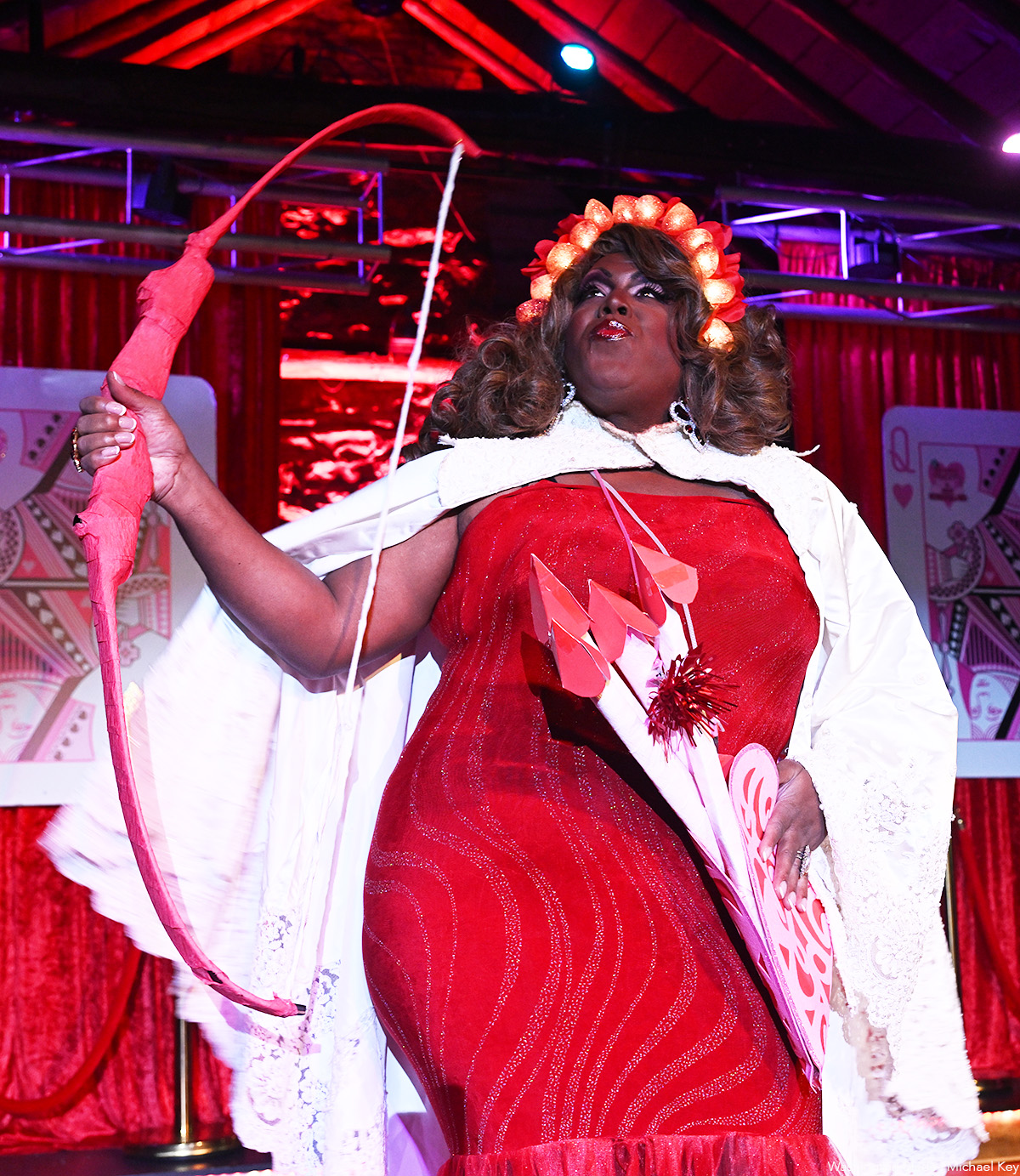
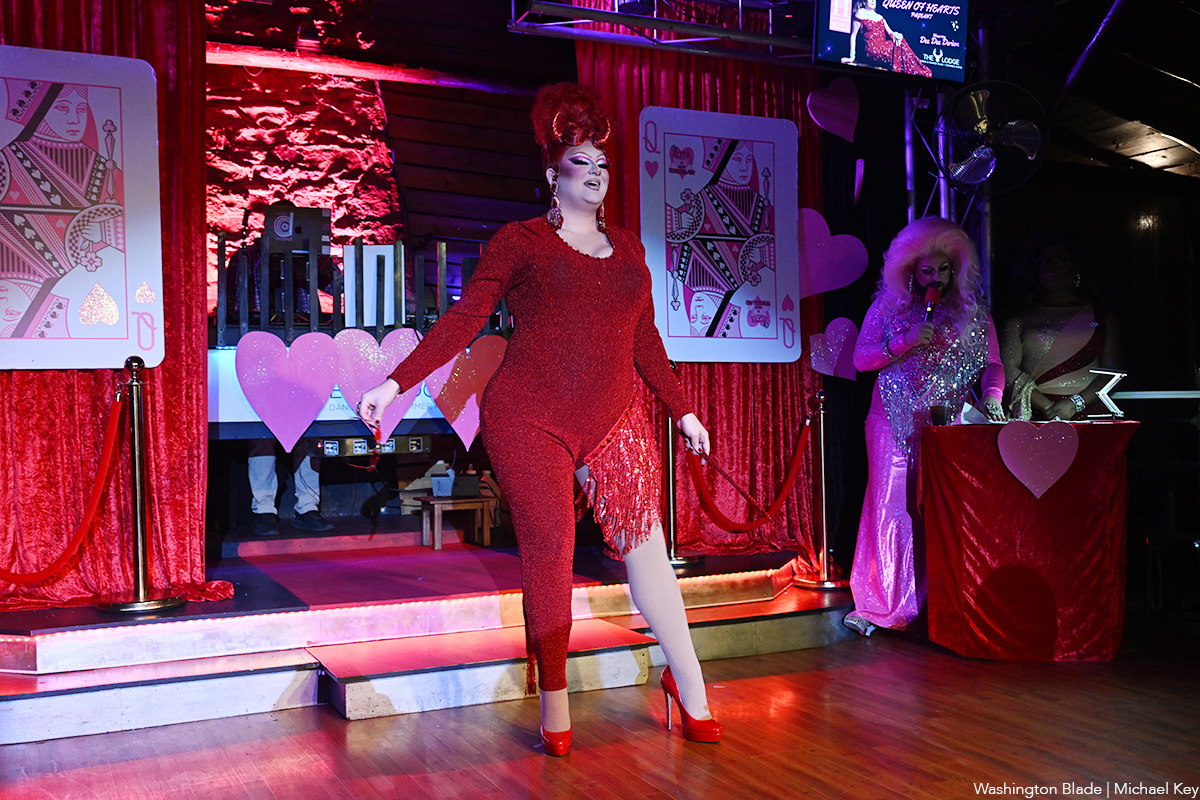
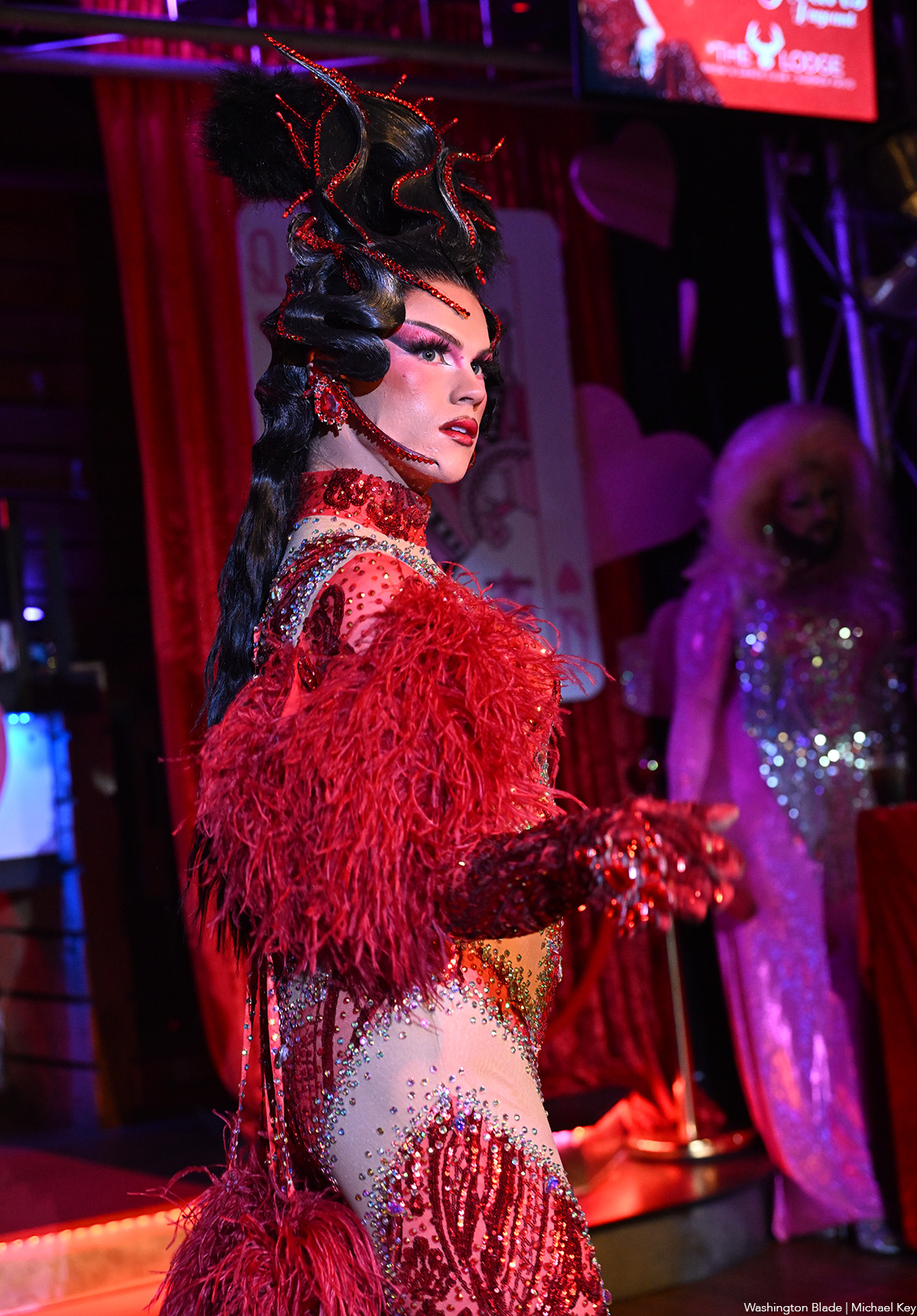
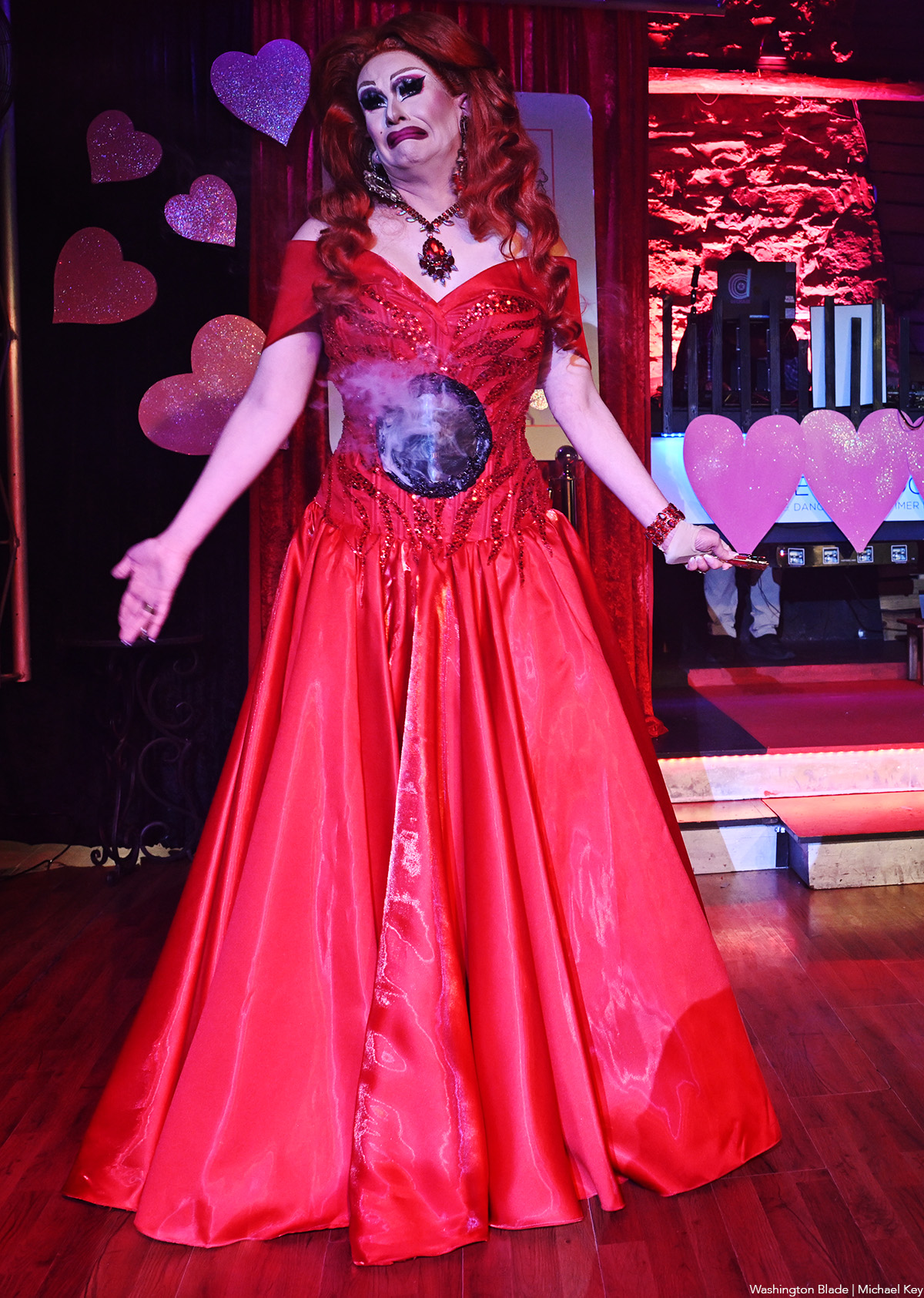
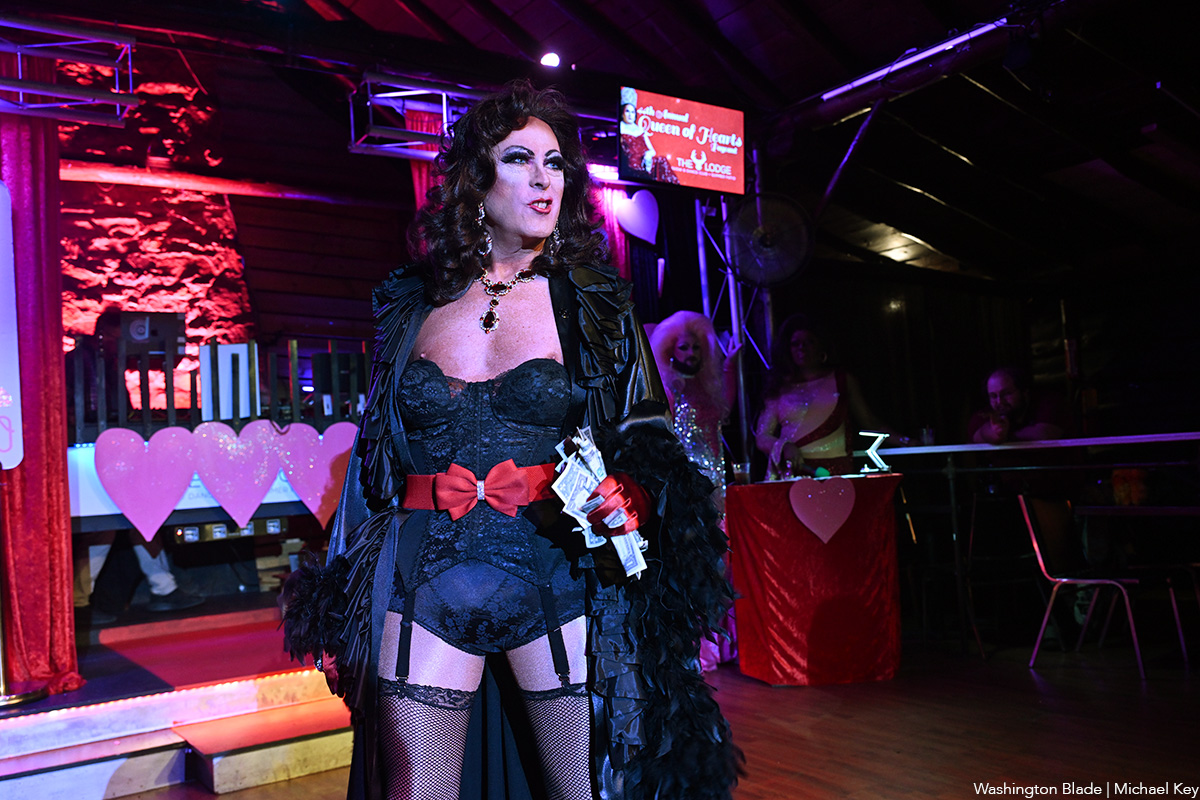
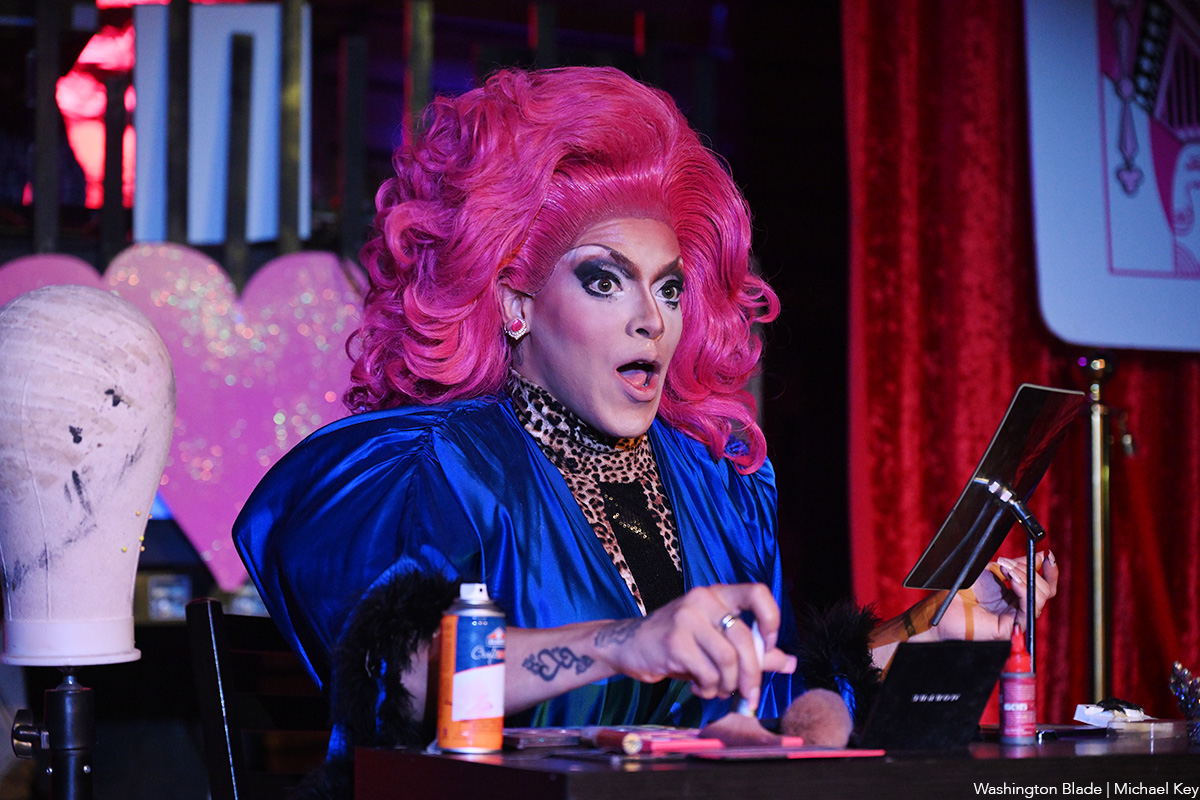
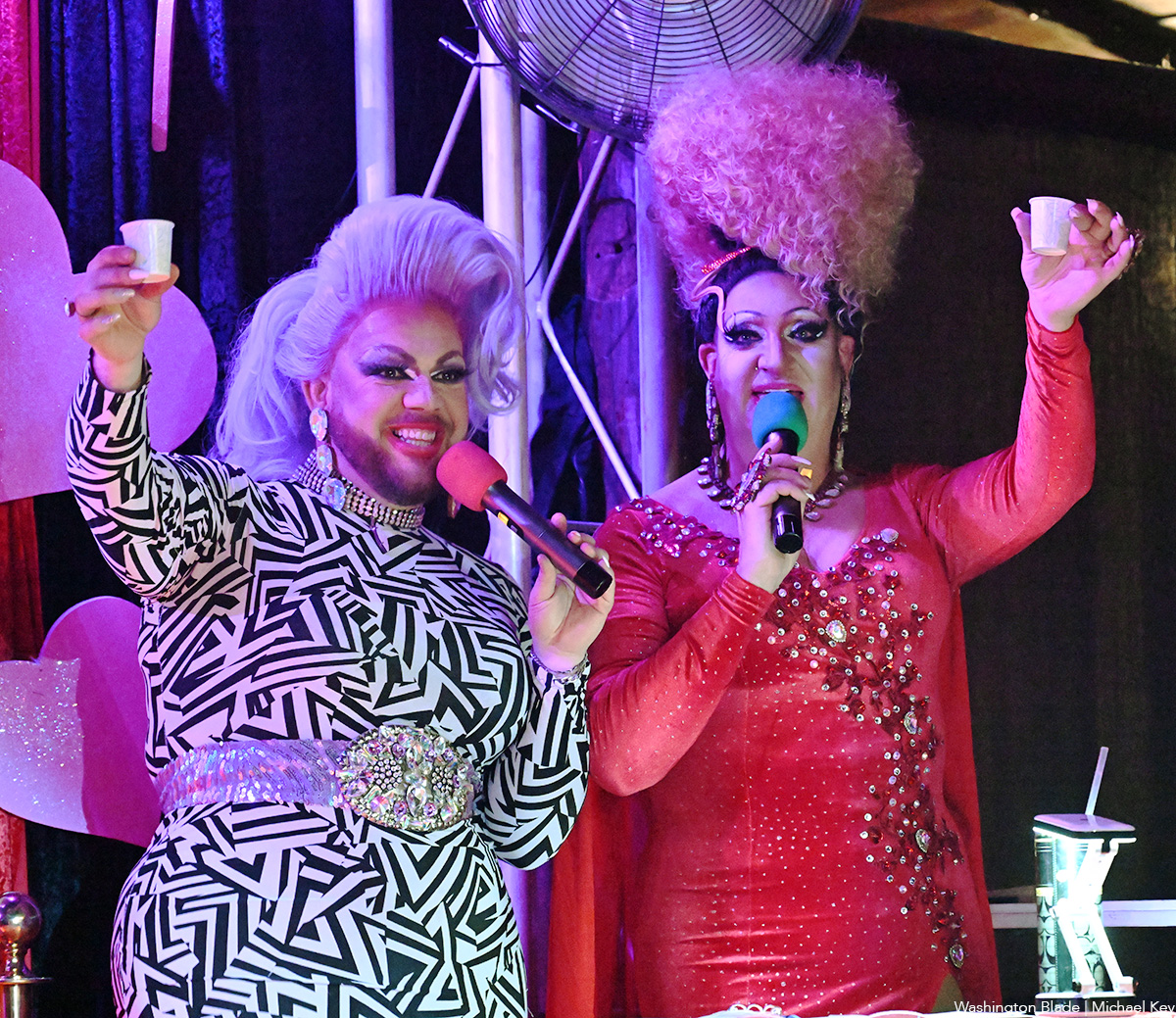
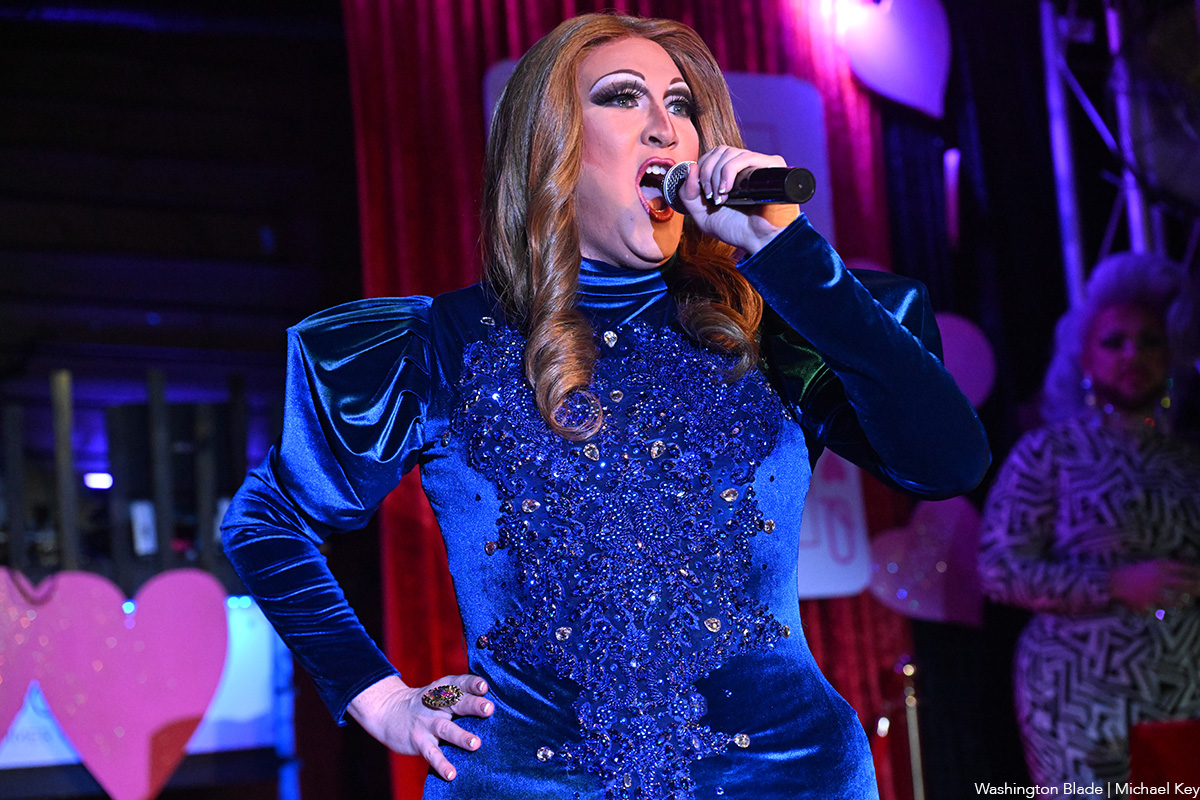
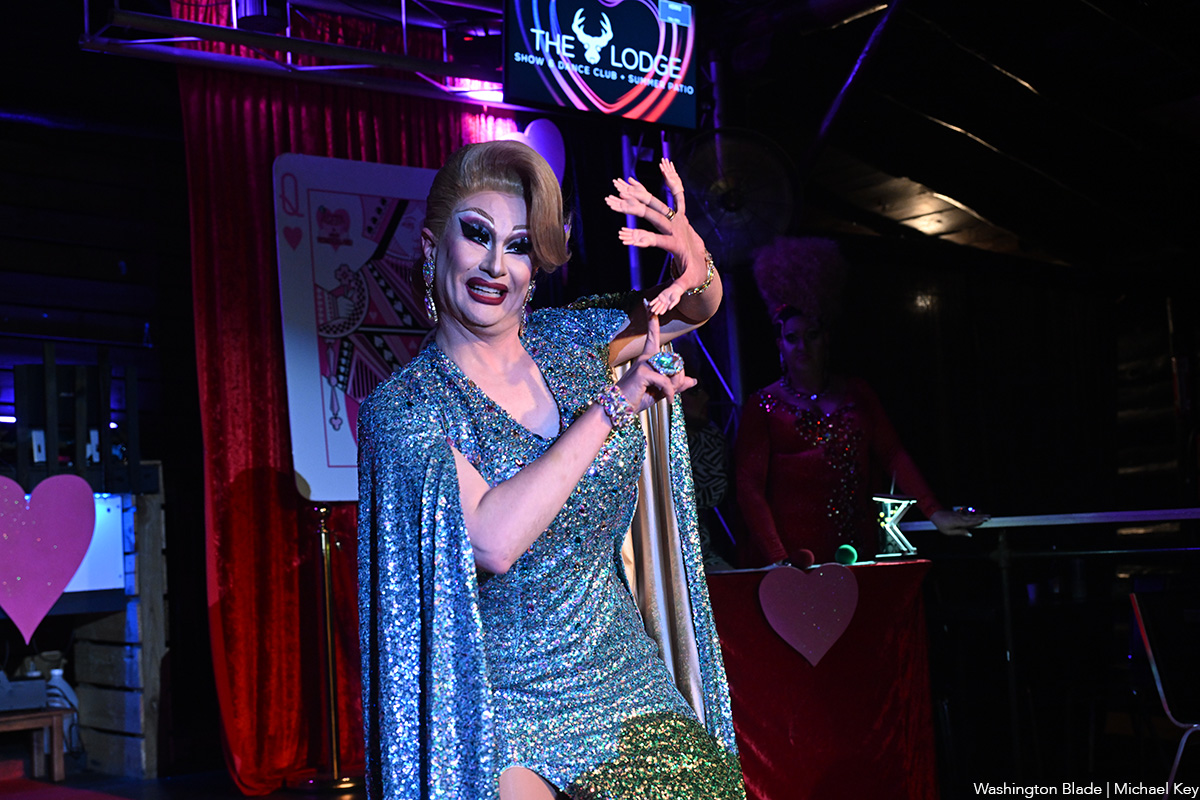
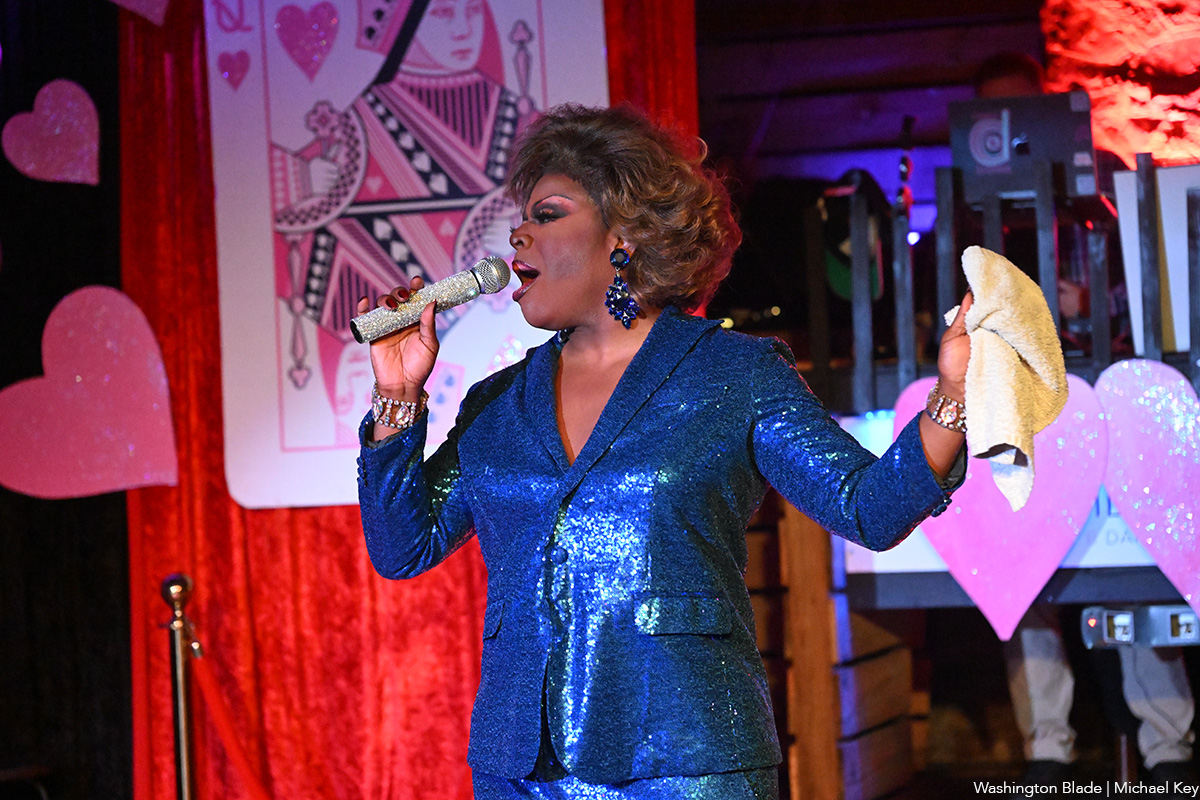

View on Threads
-

 Mexico5 days ago
Mexico5 days agoUS Embassy in Mexico issues shelter in place order for Puerto Vallarta
-

 Real Estate5 days ago
Real Estate5 days ago2026: prices, pace, and winter weather
-

 Theater5 days ago
Theater5 days agoJosé Zayas brings ‘The House of Bernarda Alba’ to GALA Hispanic Theatre
-

 Netherlands4 days ago
Netherlands4 days agoRob Jetten becomes first gay Dutch prime minister

